No. Unfortunately, QR codes are not allowed on platform presentations. No exceptions. You may add a QR code on your poster/ePoster.
WORLDSymposium 2024 Mentor List
Registered attendees met with these remarkable Mentors on Monday, February 5, 2024.
Qais Abu Ali, MD, FACMG
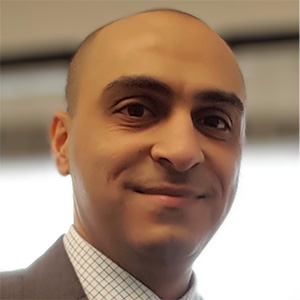
Dr. Ali is a medical geneticist and rare disease drug developer with track record of successfully developing therapies for ultra-rare disorders including lysosomal storage diseases.
Dr. Ali founded qRare International (www.qrareintl.com), a California-based boutique consulting company, with focus on deciphering genomics and developing therapeutics while advising a myriad of international health care systems, molecular diagnostic labs, contract research organizations, biotechnology and pharmaceutical companies.
Dr. Ali continues to consult on families with rare and undiagnosed genetic diseases.
Heather R. Adams, PhD
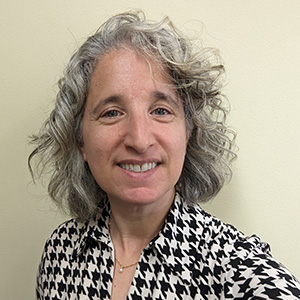
Dr. Adams is an Associate Professor in the Division of Child Neurology, URMC and a member of the UR Batten Center. She is a pediatric neuropsychologist and clinical child psychologist whose research focuses on neurobehavioral phenotyping, quality of life, adaptive function, and natural history of NCL disorders and other neuronopathic pediatric rare diseases. Dr. Adams’ other rare disease activities include clinical consultation/clinical service, consultation to C-PATH, and Chair of the PCORI Rare Disease Advisory Panel.
Kristina An Haack, MD
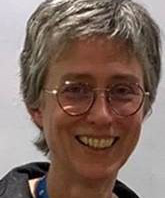
Dr. An Haack is a pediatrician who specializes in Rare Diseases. She has over 25 years of experience in Academia, Research, Drug Development and Project Direction. At Sanofi, she has held roles of increasing responsibilities in Rare Diseases Clinical Research and Development. Dr. An Haack is also the Medical Leader of Sanofi’s Pediatric Medicines Network. In her free time, she enjoys spending time with family and friends, music, sports, reading and gardening.
Christiane Auray-Blais, LLM, PhD
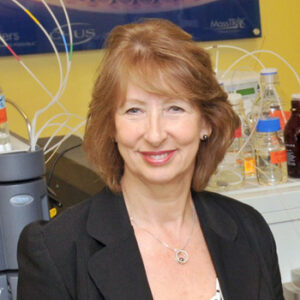
Dr. Auray-Blais is the Director of the Provincial Neonatal Urine Screening Program for hereditary metabolic disorders in Sherbrooke, QC (3 650 000 newborns screened). She holds a Ph.D. in radiobiology from the Faculty of Medicine and Health Sciences (FMHS) at the Université de Sherbrooke and postdoctoral studies from Duke University Medical Center, NC. Dr. Auray-Blais has a Master’s degree in Health Law and is a full professor in Genetics (FMHS). Mass spectrometry approaches are used for research.
Brian Bigger, PhD
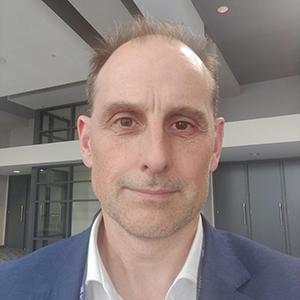
Professor Brian Bigger is Chair of Advanced Therapeutics at the University of Edinburgh, UK, with a BSc in Applied Biology and PhD in mitochondrial gene therapy.
Brian has 25+ years of experience in AAV, lentiviral and non-viral vectors, is board member of the European Study Group for Lysosomal Diseases and has licensed therapies to industry, including scientific co-founder of Orchard Therapeutics.
He holds >£30M in grants, including two clinical trials for therapies from the lab.
Elizabeth Braunlin, MD, PhD
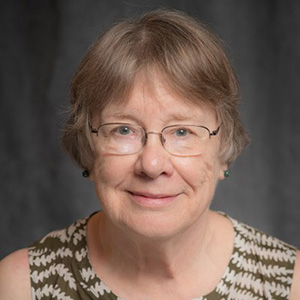
Dr. Braunlin is a pediatric cardiologist with a special focus on MPS and other lysosomal storage diseases. Since 1983, she has evaluated >200 individuals with MPS who have undergone BMT or ERT. She is also a basic scientist with an interest in the cardiac features of MPS mice, their underlying pathophysiology and the effects of novel therapies to improve current outcomes of treatment. Dr. Braunlin also has an interest in patients with Fabry and Pompe disease.
Danielle Dong, ScM, CGC
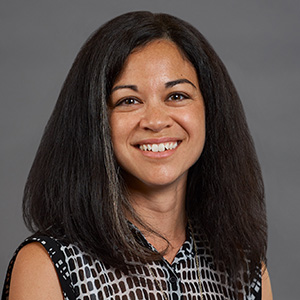
Danielle is the Global Scientific Advocacy and Insights Lead for Medical Affairs, Rare Disease at Sanofi. She advocates for the understanding and use of rare disease evidence by health care decision makers. She has experience in the operations of and leads patient initiatives for the LSD registries. Danielle is a genetic counselor who has worked clinically with patients and families. Currently, she serves on the Patient Centered Outcomes Research Institute (PCORI) Rare Disease Advisory Panel.
N. Matthew Ellinwood, DVM, PhD
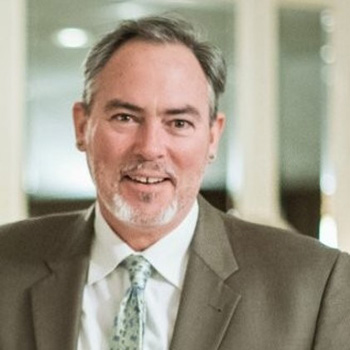
Dr. Ellinwood has longstanding research experience with the mucopolysaccharidosis and mucolipidosis disorders. He is the Chief Scientific Officer at the National MPS Society, where he guides research to benefit patients. He has an over two decades long association with the Society. He is a Professor Emeritus (Iowa State University), where he conducted basic and applied research on the neuropathic MPSs. He has experience mentoring colleagues from the level of undergraduate to the professoriate.
Maria Escolar, MD, MS
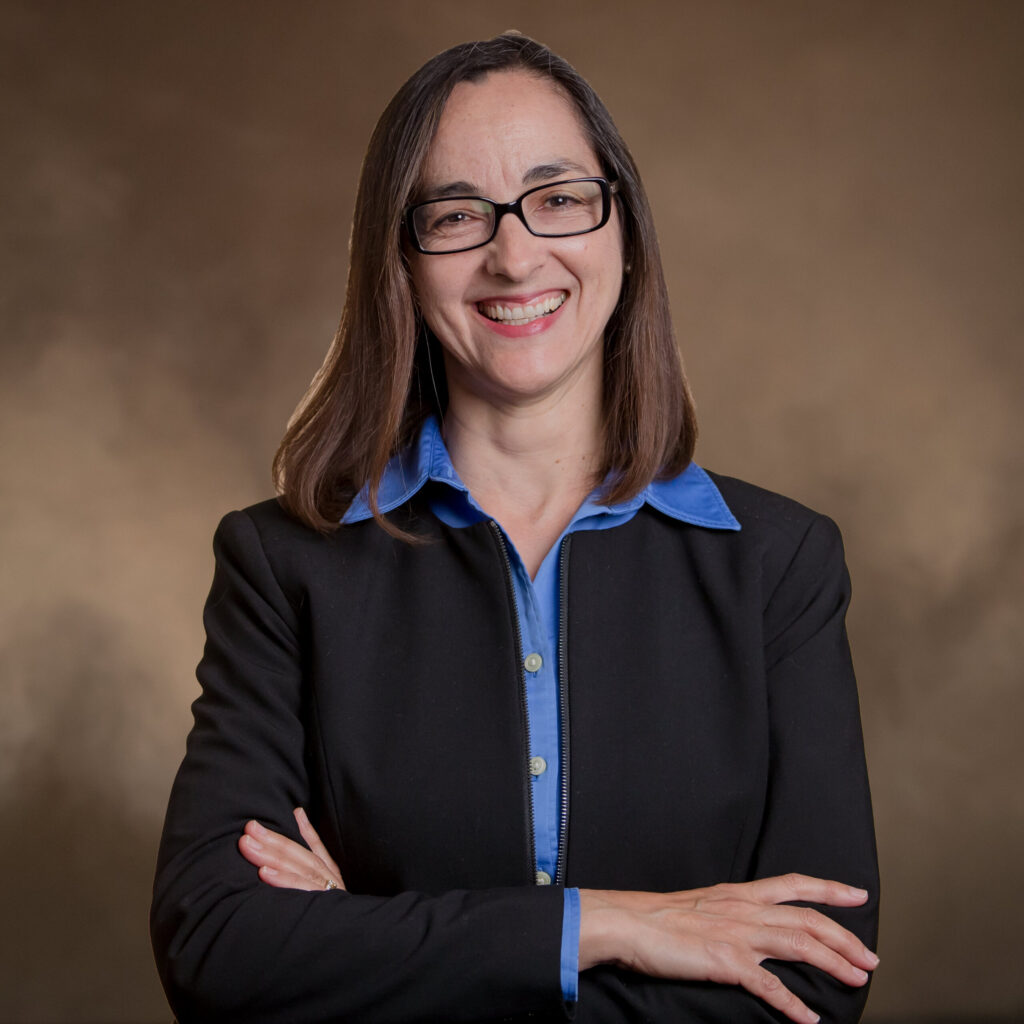
Dr. Escolar is Chief Medical Officer at Forge Biologics, a Professor of Pediatrics at the University of Pittsburgh, and Founder of the Program for the Study of Neurodevelopment in Rare Disorders (NDRD) at UPMC Children’s Hospital of Pittsburgh. She has more than 25 years of experience as a practicing clinician and researcher and is internationally known for her work in neurodevelopment of children with leukodystrophies, mucopolysaccharidosis and other genetic neurodegenerative conditions.
Maria Fuller, PhD
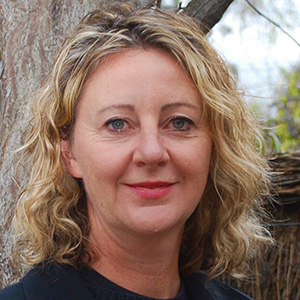
Professor Maria Fuller received her PhD from the University of Adelaide in gene therapy. Following post-doctoral studies in lysosomal disorders, then leading her own research group, she established a Translational Unit as a forum for moving research outcomes into practice. Currently, as the Clinical Scientist of the National Referral Laboratory, her main role is the provision of diagnostic services for the Australian population, notably for lysosomal disorders, underpinned by an active research and teaching program.
Pilar Giraldo, MD, PhD
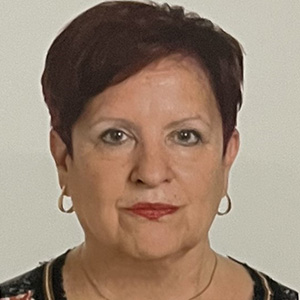
Dr. Giraldo is a hematologist, a tenured professor, and the director of PhD program in Health Sciences at San Jorge University. She is also the President of the FEETEG Spanish Foundation, the President of the Spanish Group on Lysosomal Disorders (GEEDL), a member of the IWWGD. Dr. Giraldo also serves on the expert committee in the task force Gaucher Disease of the EHA. Dr. Giraldo also organizes face-to-face training courses on LSD.
Dr. Giraldo has more than 190 articles published on LSD and rare hematological disorders, and is the editor of 6 Spanish monographs on GD. In addition, she is the Editor-in-chief of en-LISOS Spanish Journal.
Roberto Giugliani, MD, PhD
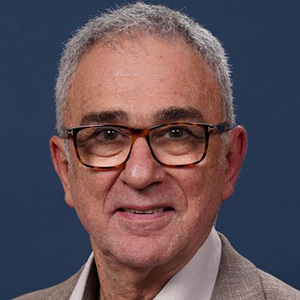
Roberto Giugliani is a professor at the Department of Genetics, UFRGS, and founder of the Medical Genetics Service, HCPA , in Porto Alegre, Brazil. He is also the President of “Casa dos Raros”, a comprehensive center for rare diseases in Brazil, and Head of Rare Diseases at Dasa Genomics. Prof. Giugliani’s main interests are concentrated in lysosomal diseases, having supervised the training of over 100 MScs and PhDs, and being author of more than 500 scientific papers.
Ozlem Goker-Alpan, MD
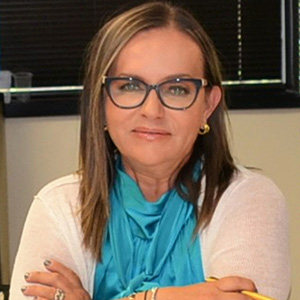
Dr. Goker-Alpan is the Founder and Chief Medical Officer at LDRTC, with over 20 years of experience in the rare diseases field. She is a world-renowned clinician and translational scientist in rare genetic and lysosomal storage disorders, training new generation of physicians and advocacy patient groups. At LDRTC, Dr. Goker-Alpan oversees multiple scientific projects exploring immune pathways and lysosomal functions to develop new diagnostic and monitoring tools in LSDs and GBA-related Parkinsonism.
Gregory Grabowski, MD
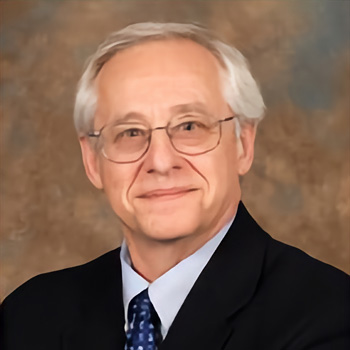
Dr. Grabowski has mentored over 80 MDs and PhDs in his career, with nearly all of them being Full or Associate Professors, as well as several Department Chairs, Division Chiefs or high-level executives/scientists in private corporations. Dr. Grabowski’s approach to mentoring is Empowerment and Accountablity. Dr. Grabowski believes his insights can be shared and have been successful.
Mark Haskins, VMD, PhD
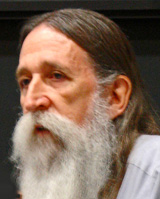
Dr. Haskins spent 40 years at the veterinary school, at the University of Pennsylvania, finding dog and cat models of human genetic disease, in particular lysosomal storage diseases, to study pathogenesis and approaches to therapy including bone marrow transplantation, enzyme, and gene therapy.
Mia Horowitz, PhD
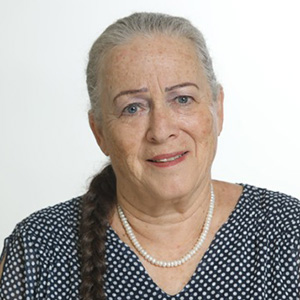
Dr. Horowitz has been interested for many years in the molecular mechanisms underlying Gaucher Disease and the contribution of protein misfolding to the pathogenesis associated with Lysosomal Storage Disorders. Using Drosophila as the model organism, her lab has shown that misfolding of mutant glucocerebrosidase, whose activity is decreased in Gaucher Disease, has a role in development of Parkinson disease. Dr. Horowitz’s lab also documented misfolding of mutant alfa GalA in Fabry disease and its amelioration by migalastat.
Mohammad Arif Hossain, MD, PhD, FRCPCH
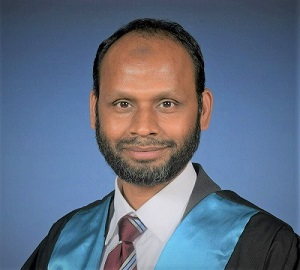
Dr. Mohammad is currently serving as a Medical Advisor within the Clinical Development Division at JCR Pharmaceuticals Ltd. He has extensive experience in clinical research, education, and patient care. Educated at renowned institutions, Dr. Mohammad has contributed significantly to the field of lysosomal storage disorders and medical genetics. His accolades include multiple Young Scientist Awards and pivotal research publications. With a profound understanding of clinical trial management and medical advisory, Dr. Mohammad’s expertise promises valuable insights and guidance for emerging professionals in the medical field.
Jeanine Jarnes, PharmD, MSc Pharmacogenomics

Jeanine Jarnes, PharmD, MSc Pharmacogenomics, is an Assistant Professor at the University of Minnesota Department of Pediatrics, Medical School, an adjunct assistant professor in the College of Pharmacy, University of Minnesota and a pharmacotherapy provider for patients with lysosomal diseases. Dr. Jarnes’s research focus includes: gangliosidosis diseases, pharmacogenomics, small molecule and gene therapies, classifying and managing infusion reactions to intravenous enzyme replacement therapies (ERT), and pharmacokinetics and pharmacodynamics of enzyme replacement, small molecule therapies and gene therapies.
Priya Kishnani, MD
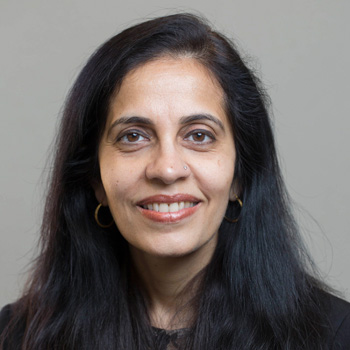
Priya Kishnani is the Chen Family Distinguished Professor of Pediatrics, Division of Medical Genetics chief, and professor in the Department of Molecular Genetics and Microbiology at Duke University.
Kishnani has conducted groundbreaking clinical and translational research in the fields of lysosomal storage diseases and glycogen storage diseases. Kishnani has been instrumental in the development of alglucosidase alfa and has shown commitment to understanding the natural history and evaluation of therapies of several LSDs and GSDs.
Francyne Kubaski, PhD
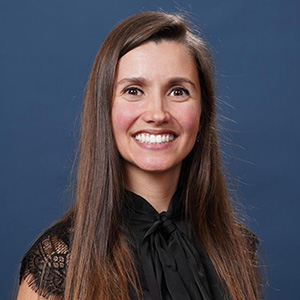
Dr. Kubaski is a staff scientist in the Biochemical Genetics Laboratory at Greenwood Genetic Center. She has a PhD in Genetics and Molecular biology (Udel), and a Post-doc in Genetics and molecular biology (UFRGS). Dr. Kubaski has been involved with research for inborn errors of metabolism, and most specifically lysosomal disorders, for over 10 years to apply tandem mass spectrometry for diagnosis, treatment monitoring, and newborn screening for these diseases.
Malte Lenders, PhD
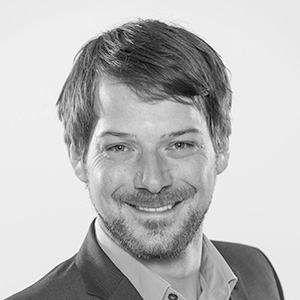
Dr. Malte Lenders studied Biology at the WWU Muenster, Germany focussing on genetics and biotechnology. Since 2011 he works at the Fabry disease center (University Hospital Muenster, Germany) and is jointly responsible for progressing research projects. His main research interests are genetic predisposition, genotype-phenotype associations and function of genes in inherited inborn errors with a focus on Fabry disease. Furthermore, he is interested in mechanisms involved in arterial stiffness, endothelial dysfunction, and immunologic processes.
Saida Ortolano, PhD
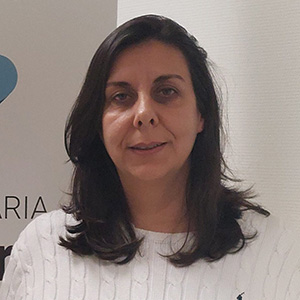
Dr. Ortolano has a PhD in Biochemistry and Molecular Cytogenetics; Postdoc: NIAID, NIH, in Bethesda, USA (2002-2005) and at the Venetian Institute of Molecular Medicine, Italy (2005-2008). Since 2008 at IISGS, Spain, Dr. Ortolano currently leads the Group of Rare Disease and Pediatric Medicine. Her team studies molecular bases of lysosomal diseases and new treatments, and have developed a vector for FD gene therapy. Dr. Ortolano is an inventor of international patents: “Use of pharmacological chaperones for the treatment of lysosomal diseases.”
Marc C. Patterson, MD
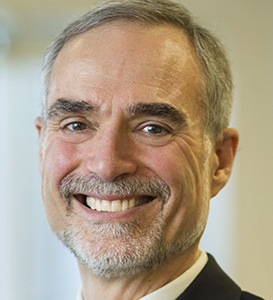
Dr. Patterson is a child neurologist with clinical and research experience in lysosomal disorders since my fellowship with Roscoe Brady at NIH in 1990-1992. He has participated in multiple clinical studies, including the pivotal trial that led to the approval of miglustat for Niemann-Pick disease, type C in the European Union. Dr. Patterson currently serves as Editor of JIMD and Editor-in-Chief of the Journal of Child Neurology, and Professor (Neurology, Pediatrics, Medical Genetics) at Mayo Clinic.
Carlos Prada, MD
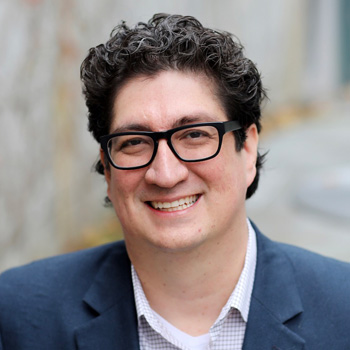
Dr. Prada finds it an honor to work with children, adults, and families with genetic diseases. Dr. Prada has conducted randomized clinical trials of lysosomal storage disorders, neurofibromatosis type 1, RASopathies, mTORopathies, and several natural history studies of genetic disorders in partnership with family groups and foundations. In 2021, Dr. Prada joined Lurie Children’s and the Feinberg School of Medicine at Northwestern University as the Division Head of Genetics, Genomics and Metabolism.
Michael Przybilla, PhD

Dr. Michael Przybilla is an Assistant Professor in the Department of Pediatrics, Division of Pediatric Genetics & Metabolism. Dr. Przybilla received his PhD in Molecular, Cellular, Developmental Biology and Genetics from the University of Minnesota in 2018 and continued his work as a postdoctoral associate in the Gene Therapy and Diagnostics Laboratory. Currently, Dr. Przybilla’s work focuses on therapeutic development for lysosomal disorders, including gene therapy and gene editing, small molecules, and small activating RNA.
Biliana O. Veleva-Rotse, PhD
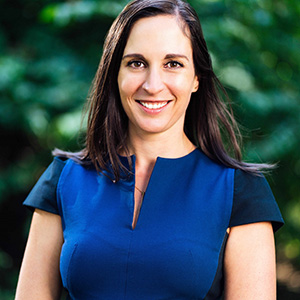
Dr. Biliana Veleva-Rotse, PhD serves as the Global Medical and Medicines Lead for Fabry Disease at Amicus Therapeutics. She received her PhD in neuroscience at the Oregon Health and Science University in Portland, Oregon in 2015, and followed that with a postdoctoral fellowship studying mechanisms of myelin repair. Since 2016, she has been working in Medical Affairs, where she helps drive development of therapies that positively impact patient lives.
Raphael Schiffmann, MD, MHSc, FAAN
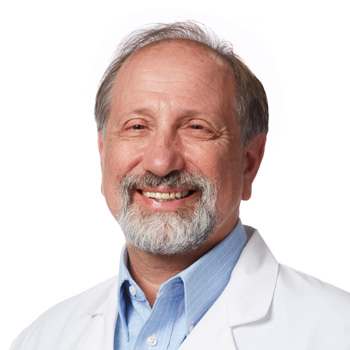
Dr. Schiffmann is a neurologist with special competence in child neurology, and currently is a Professor in the department of Internal Medicine in Texas Christian University at Fort-Worth, Texas. Previously, he performed pre-clinical and clinical research, mainly on lysosomal diseases, at the National Institutes of Health and at the Baylor Institute of Metabolic Disease in Dallas, Texas for a combined total of 30 years. His publication record and scientific impact can be viewed here.
Benedikt Schoser, MD
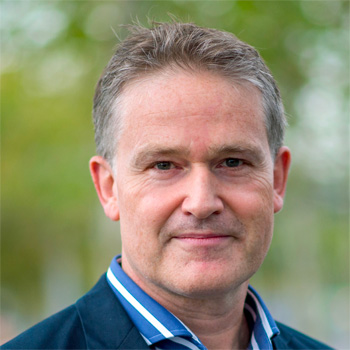
Benedikt Schoser is a professor of neurology and senior consultant neurologist at Friedrich-Baur Institute, Dep. of Neurology, LMU Munich, Germany. He is a fellow of the EAN and board member of the World muscle society executive board. Since 2015, Prof. Schoser has co-chaired the European Pompe Consortium (EPOC). He has authored more than 330 peer-reviewed publications (>65 in glycogen storage diseases). Prof. Schoser is especially interested in the therapy of multisystemic neuromuscular and metabolic disorders.
Ellen Sidransky, MD
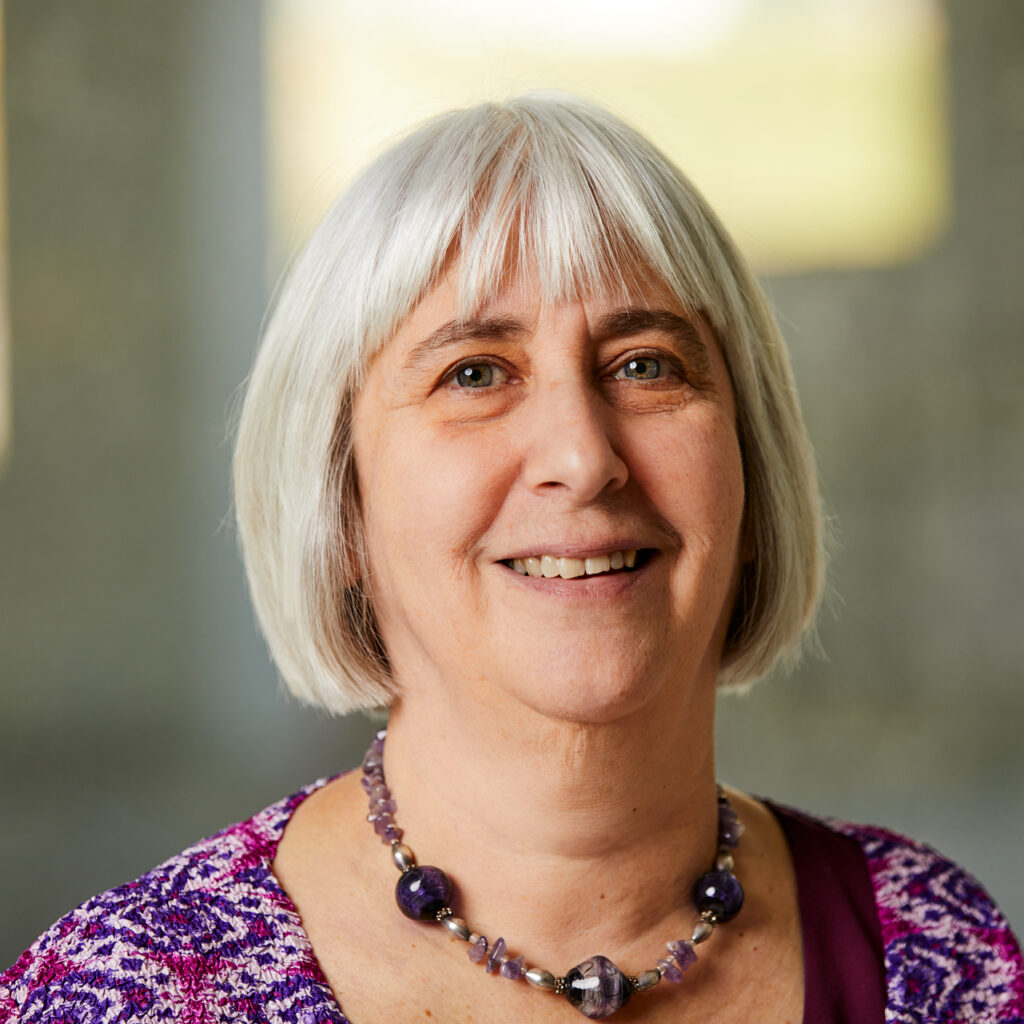
Ellen Sidransky, MD, is the Branch Chief of the Medical Genetics Branch and is a pediatrician and geneticist in the National Human Genome Research Institute at National Institutes of Health (NIH). Dr. Sidransky received her B.A. from Brandeis University and her M.D. from Tulane University. She trained in pediatrics at Northwestern University, and in Clinical Genetics at the NIH. Dr. Sidransky has been a tenured NIH investigator and Section Chief since 2000. Her research interests include both clinical and basic aspects of Gaucher disease and Parkinson disease, studies of genotype/phenotype correlation and genetic modifiers, insights from mouse models, and novel treatment strategies. She played a lead role in establishing the association between glucocerebrosidase and parkinsonism.
Bob Stevens
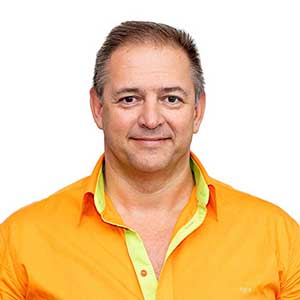
Bob Stevens is a “Rare” dad. He is a Group CEO of a 40 year-old patient organisation and clinical trial support & research subsidiary, and a global advocate and motivational speaker. From campaigning for newborn screening to meeting industry leaders and politicians, he understands that it’s a community-focus. With 20 years in the “Rare” community, he still gets up every day wanting to make a difference, to challenge and inspire. It’s not a job but a way of life.
Danilo Tagle, MS, PhD
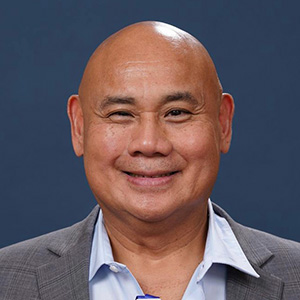
Danilo Tagle is currently Director, Office of Special Initiatives at the National Center for Advancing Translational Sciences (NCATS) of the National Institutes of Health (NIH) where he leads efforts in developing innovative tools and technologies that can greatly accelerate development of diagnostics and therapeutics. These programs involve interdisciplinary collaborations between intramural and extramural components of NIH, and entail partnerships with other agencies, such as FDA, NASA and DARPA, as well as with private sector.
Beth L. Thurberg, MD, PhD
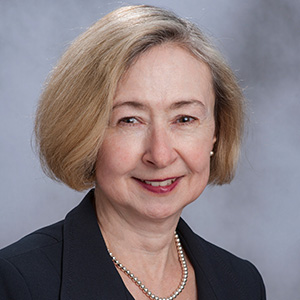
Beth Thurberg, MD, PhD served as Vice President and Head of Global Discovery Pathology at Sanofi Genzyme for 20 years. Her laboratory at Sanofi Genzyme provided pathology expertise and analysis of preclinical studies and human biopsies from Phase 1 through Phase 4 clinical trials. She is a world-recognized expert in the pathophysiology of lysosomal disease and was responsible for the clinical trial pathology leading to the development and FDA approvals of multiple enzyme replacement therapies.
Raymond Wang, MD
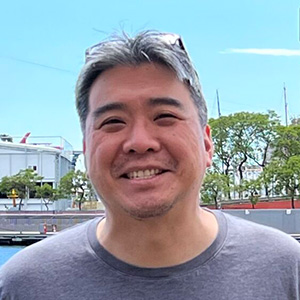
Dr. Wang is the Director of the Multidisciplinary Lysosomal Storage Disorder Program at CHOC, a board-certified clinical geneticist and biochemical genetics specialist, a CIRM and NIH-funded physician scientist overseeing a translational research laboratory assessing CRISPR genome editing as therapy for inherited disorders, and clinical trial investigator for multiple interventional studies concerning lysosomal storage disease.
David Weinstein, MD, MMsc
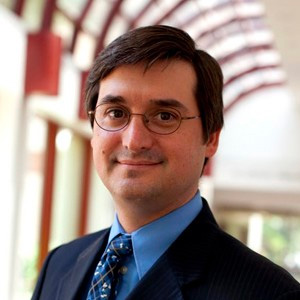
Following a 30-year academic career focused on glycogen storage disease management and research, Dr. Weinstein led gene therapy trials for LSDs in industry. He is now consulting for rare disease trials. He was a Goldwater Scholar, and was honored with the Jan Albrecht Award from the AASLD and the George Sacher Award from the Gerontological Society of America. In 2013, he was knighted in Poland and received the Order of the Smile international humanitarian award.
Chester Whitley, PhD, MD
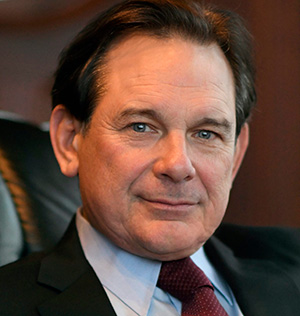
US transplants for lysosomal diseases 1983, the proof-of-principle systemic treatments. Coined “ultra-orphan disease” in 1990’s. First gene-therapy for mucopolysaccharidosis condition (Hunter syndrome 1998). Invented MPStest® for GAG introduced by Zebraic Corporation (1999), simultaneously associating the “zebra” with “rare conditions”. Discovered MPS I pseudo-deficiency. Pre-clinical assessment of Sangamo’s gene-editing for MPS. Co-inventor of PS Gene-editing System™. Founded International Symposium on Mucopolysaccharidosis and Related Diseases (1988). NIH-funded “Gene Therapy for Metabolic Disease” and “Lysosomal Disease Network”.
Ari Zimran, MD
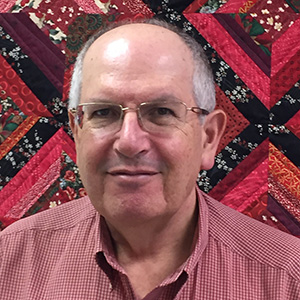
Dr. Zimran has studied Gaucher disease, both basic science and clinical research, during the past 3 decades, including leading roles in almost all clinical trial of this super model for rare diseases at large. Dr. Zimran has also organized annual meetings on rare diseases mainly in Europe and currently have founded AGYANY Pharmaceuticals – a company developing specific therapy for GBA1 related Parkinson’s disease, leveraging knowledge from academia to drug development.
September 2024 Research Spotlight:
FOCUS ON MPS
The first edition of SPOTLIGHT highlights recent scientific publications on mucopolysaccharidoses (MPS). Authors who have been speakers at WORLDSymposium are noted in bold.
- Capsular and retinaculum thickening in type II mucopolysaccharidosis: a novel MRI finding
Sato VN, Moriwaki TL, do Amaral E Castro A, da Rocha Correa Fernandes A, Guimaraes JB, Bigger B.
Skeletal Radiol. 2024 Jun;53(6):1211-1217. doi: 10.1007/s00256-023-04499-x. Epub 2023 Nov 6. PMID: 37930378 - A novel graphene oxide-based fluorescence method for detection of urine glycosaminoglycans
Kösoğlu CB, Dede S, Karakuş E, Erdoğmuş A, Keskin B, Önal H.
Biotechnol Appl Biochem. 2024 Jun;71(3):651-660. doi: 10.1002/bab.2565. Epub 2024 Mar 6. PMID: 38449083 - Mucopolysaccharidosis (MPS IIIA) mice have increased lung compliance and airway resistance, decreased diaphragm strength, and no change in alveolar structure
Paget TL, Larcombe AN, Pinniger GJ, Tsioutsias I, Schneider JP, Parkinson-Lawrence EJ, Orgeig S.
Am J Physiol Lung Cell Mol Physiol. 2024 Jun 1;326(6):L713-L726. doi: 10.1152/ajplung.00445.2022. Epub 2024 Mar 5. PMID: 38469649 - Ultra-Performance Liquid Chromatography-Tandem Mass Spectrometry Analysis of Urinary Oligosaccharides and Glycoamino Acids for the Diagnosis of Mucopolysaccharidosis and Glycoproteinosis
Wongkittichote P, Cho SH, Miller A, King K, Herbst ZM, Ren Z, Gelb MH, Hong X.
Clin Chem. 2024 Jun 3;70(6):865-877. doi: 10.1093/clinchem/hvae043. PMID: 38597162 - Novel human recombinant N-acetylgalactosamine-6-sulfate sulfatase produced in a glyco-engineered Escherichia coli strain
Pimentel-Vera LN, Rodríguez-López A, Espejo-Mojica AJ, Ramírez AM, Cardona C, Reyes LH, Tomatsu S, Jaroentomeechai T, DeLisa MP, Sánchez OF, Alméciga-Díaz CJ.
Heliyon. 2024 Jun 8;10(12):e32555. doi: 10.1016/j.heliyon.2024.e32555. eCollection 2024 Jun 30. PMID: 38952373 - Structure of the human heparan-α-glucosaminide N-acetyltransferase (HGSNAT)
Navratna V, Kumar A, Rana JK, Mosalaganti S.
bioRxiv [Preprint]. 2024 Jun 12:2023.10.23.563672. doi: 10.1101/2023.10.23.563672. PMID: 37961489 - Improved specificity and efficacy of base-editing therapies with hybrid guide RNAs
Whittaker MN, Brooks DL, Quigley A, Jindal I, Said H, Qu P, Wang JZ, Ahrens-Nicklas RC, Musunuru K, Alameh MG, Peranteau WH, Wang X.
bioRxiv [Preprint]. 2024 Jun 16:2024.04.22.590531. doi: 10.1101/2024.04.22.590531. PMID: 38712058 - Anakinra in Sanfilippo syndrome: a phase 1/2 trial
Polgreen LE, Chen AH, Pak Y, Luzzi A, Morales Garval A, Acevedo J, Bitan G, Iacovino M, O’Neill C, Eisengart JB.
Nat Med. 2024 Jun 21. doi: 10.1038/s41591-024-03079-3. Online ahead of print. PMID: 38907160 - Structural and mechanistic insights into a lysosomal membrane enzyme HGSNAT involved in Sanfilippo syndrome
Zhao B, Cao Z, Zheng Y, Nguyen P, Bowen A, Edwards RH, Stroud RM, Zhou Y, Van Lookeren Campagne M, Li F.
Nat Commun. 2024 Jun 25;15(1):5388. doi: 10.1038/s41467-024-49614-1. PMID: 38918376 - Genetic features of patients with MPS type IIIB: Description of five pathogenic gene variations
Nasir Shalal M, Aminzadeh M, Saberi A, Azizi Malmiri R, Aminzadeh R, Ghandil P.
Gene. 2024 Jun 30;913:148354. doi: 10.1016/j.gene.2024.148354. Epub 2024 Mar 15. PMID: 38492611 - Evaluation of tendon and ligament microstructure and mechanical properties in a canine model of mucopolysaccharidosis I
Lau YK, Iyer K, Shetye S, Friday CS, Dodge GR, Hast MW, Casal ML, Gawri R, Smith LJ.
J Orthop Res. 2024 Jul;42(7):1409-1419. doi: 10.1002/jor.25813. Epub 2024 Feb 18. PMID: 38368531 - AAV gene replacement therapy for treating MPS IIIC: Facilitating bystander effects via EV-mRNA cargo
Bobo TA, Robinson M, Tofade C, Sokolski-Papkov M, Nichols P, Vorobiov S, Fu H.
J Extracell Vesicles. 2024 Jul;13(7):e12464. doi: 10.1002/jev2.12464. PMID: 38961538 - Systemic immune challenge exacerbates neurodegeneration in a model of neurological lysosomal disease
Mandolfo O, Parker H, Aguado È, Ishikawa Learmonth Y, Liao AY, O’Leary C, Ellison S, Forte G, Taylor J, Wood S, Searle R, Holley RJ, Boutin H, Bigger BW.
EMBO Mol Med. 2024 Jul;16(7):1579-1602. doi: 10.1038/s44321-024-00092-4. Epub 2024 Jun 18. PMID: 38890537 - Generation of a novel immunodeficient mouse model of Mucopolysaccharidosis type IIIA to test human stem cell-based therapies
Mandolfo O, Parker H, Usman A, Learmonth YI, Holley RJ, MacDonald A, McKay T, Bigger B.
Mol Genet Metab. 2024 Jul 9;143(1-2):108533. doi: 10.1016/j.ymgme.2024.108533. Online ahead of print. PMID: 39059269 - Enzymatic testing for mucopolysaccharidosis type I in Kuwaiti newborns: a preliminary study toward newborn screening
Alsharhan H, Haider MZ, Qadoura B, Ayed M, Dhaunsi GS, Alkandari H.
Front Pediatr. 2024 Jul 15;12:1376053. doi: 10.3389/fped.2024.1376053. eCollection 2024. PMID: 39077064 - Laronidase-loaded liposomes reach the brain and other hard-to-treat organs after noninvasive nasal administration
Schuh RS, Franceschi EP, Brum BB, Fachel FNS, Poletto É, Vera LNP, Santos HS, Medeiros-Neves B, Monteagudo de Barros V, Helena da Rosa Paz A, Baldo G, Matte U, Giugliani R, Ferreira Teixeira H.
Int J Pharm. 2024 Jul 20;660:124355. doi: 10.1016/j.ijpharm.2024.124355. Epub 2024 Jun 17. PMID: 38897489 - Long-term cardiovascular outcomes and mortality with enzyme replacement therapy in patients with mucopolysaccharidosis type II
Kwak JH, Choi YJ, Kim S, Yang A.
J Inherit Metab Dis. 2024 Jul 30. doi: 10.1002/jimd.12779. Online ahead of print. PMID: 39076005 - Community consensus for Heparan sulfate as a biomarker to support accelerated approval in Neuronopathic Mucopolysaccharidoses
Muenzer J, Ho C, Lau H, Dant M, Fuller M, Boulos N, Dickson P, Ellinwood NM, Jones SA, Zanelli E, O’Neill C.
Mol Genet Metab. 2024 Aug;142(4):108535. doi: 10.1016/j.ymgme.2024.108535. Epub 2024 Jul 10. PMID: 39018614 - Evaluation of neuroretina following i.v. or intra-CSF AAV9 gene replacement in mice with MPS IIIA, a childhood dementia
Beard H, Winner L, Shoubridge A, Parkinson-Lawrence E, Lau AA, Mubarokah SN, Lance TR, King B, Scott W, Snel MF, Trim PJ, Hemsley KM.
CNS Neurosci Ther. 2024 Aug;30(8):e14919. doi: 10.1111/cns.14919. PMID: 39123298 - Identification of Orthosteric and Allosteric Pharmacological Chaperones for Mucopolysaccharidosis Type IIIB
Losada JC, Triana H, Vanegas E, Caro A, Rodríguez-López A, Espejo-Mojica AJ, Alméciga-Diaz CJ.
Chembiochem. 2024 Aug 1;25(15):e202400081. doi: 10.1002/cbic.202400081. Epub 2024 Jul 16. PMID: 38830828 - Synergistic effects of resveratrol and enzyme replacement therapy in the Mucopolysaccharidosis type I
Rintz E, Ziemian M, Kobus B, Gaffke L, Pierzynowska K, Wegrzyn G.
Biochem Pharmacol. 2024 Aug 5;229:116467. doi: 10.1016/j.bcp.2024.116467. Online ahead of print. PMID: 39111602 - Structure of the human heparan-α-glucosaminide N-acetyltransferase (HGSNAT)
Navratna V, Kumar A, Rana JK, Mosalaganti S.
Elife. 2024 Aug 28;13:RP93510. doi: 10.7554/eLife.93510. PMID: 39196614
WORLDSymposium 2023 Mentor List
Registered attendees met with these remarkable Mentors on Wednesday, February 22, 2023.
Abu Ali, Qais, MD, FACMG
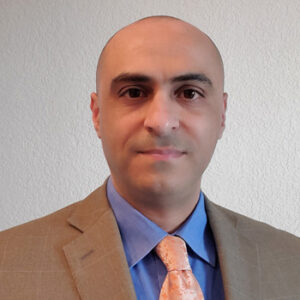
Dr. Ali, an ABMGG-certified geneticist and rare disease drug developer, is US-trained in Internal Medicine, Clinical Genetics and Molecular Genetics. Formerly of the NIH, he founded qRare International in California (www.qrareintl.com) and held clinical, research and executive roles in healthcare, diagnostics and pharmaceuticals. Dr. Ali led, designed and contributed to various successful rare disease clinical trials across all phases culminating in regulatory approvals globally. Dr. Ali continues to consult on patients with rare genetic diseases.
Auray-Blais, Christiane, PhD and Masters degree in Health Law

Director of the Neonatal Urine Screening Program for hereditary metabolic disorders in Sherbrooke, QC. After a postdoc at Duke University, she is a full Professor-Researcher (LL.M., Ph.D.) at the Faculty of Medicine and Health Sciences at the Université de Sherbrooke. Her work involves translational research: biomarker discovery to method development/validation using mass spectrometric approaches and technological transfer to the clinical field. She is the Scientific Director for the Waters-CHUS Expertise Centre in Clinical Mass Spectrometry.
Bigger, Brian, PhD
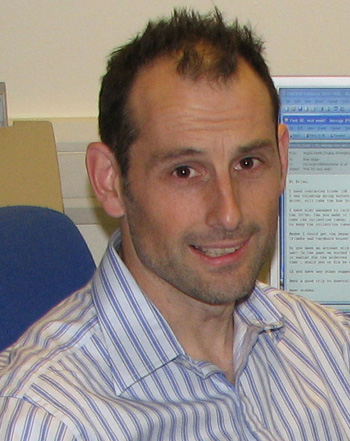
Professor Brian Bigger is Chair of Cell and Gene Therapy at Manchester University, UK, with a BSc in Applied Biology and PhD in mitochondrial gene therapy. Brian has 25+ years of experience in AAV, lentiviral and non-viral vectors, is Chairman of the European Study Group for Lysosomal Diseases and has licensed therapies to industry, including as scientific co-founder of Orchard Therapeutics. He holds >£27M in grants, including two clinical trials for therapies from the lab.
Desnick, Robert, MD, PhD, DSc (Hon)
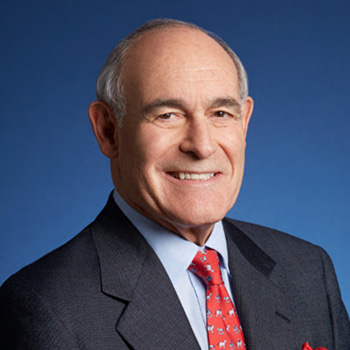
Robert Desnick, MD, PhD is Dean for Genetics and Genomic Medicine Emeritus, Professor and Chair Emeritus, Department of Genetics and Genomic Sciences, Icahn School of Medicine at Mount Sinai. His research focuses on the prevention/treatment of LSDs including development of enzyme therapy for Fabry and Niemann-Pick A/B diseases and chaperone therapy for Fabry disease. For >45 years, he was Program Director of NIH training grants, mentoring >150 pre/post-doctoral fellows who succeeded in academia and industry.
Ellinwood, N. Matthew, DVM, PhD

Dr. Ellinwood has longstanding research experience with the mucopolysaccharidosis and mucolipidosis disorders. He is the Chief Scientific Officer at the National MPS Society, where he guides research to benefit patients. He has an over two decades long association with the Society. He is a Professor Emeritus (Iowa State University), where he conducted basic and applied research on the neuropathic MPSs. He has experience mentoring colleagues from the level of undergraduate to the professoriate.
Escolar, Maria, MD, MS
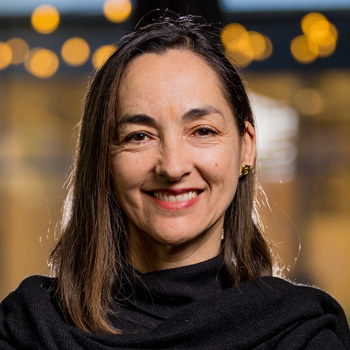
Maria Escolar, MD, MS is a pioneer in clinical trials design and is currently leading the development of gene therapy for Krabbe disease as Chief Medical Officer at Forge Biologics. She is also a tenured Professor of Pediatrics at University of Pittsburgh, with more than 20 years of experience as a practicing clinician and over 95 publications, garnering international recognition for her work in neurodevelopment of children with leukodystrophies, mucopolysaccharidosis and other genetic, neurodegenerative conditions.
Fuller, Maria, PhD
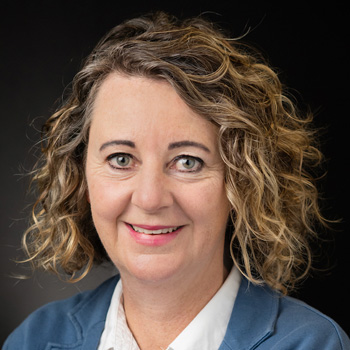
Professor Maria Fuller received her PhD from the University of Adelaide in gene therapy. Following post-doctoral studies in lysosomal disorders, then leading her own research group, she established a Translational Unit as a forum for moving research outcomes into practice. Currently, as the Clinical Scientist of the National Referral Laboratory, her main role is the provision of diagnostic services for the Australian population, notably for lysosomal disorders, underpinned by an active research and teaching program.
Gahl, William, MD, PhD
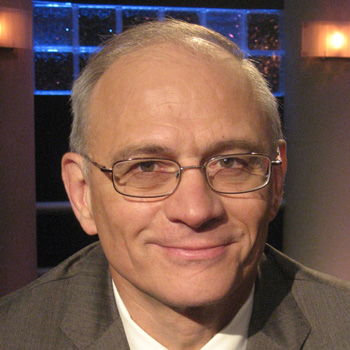
I study rare genetic disorders, particularly inborn errors of metabolism. I also direct the NIH Undiagnosed Diseases Program, which investigates patients with mysterious disorders to make diagnoses and to discover new genetic diseases and pathways. I am a pediatrician, clinical geneticist, biochemical geneticist, and PhD biochemist. I want to be a mentor because it has a chance to make me feel young again.
Giugliani, Roberto, MD, PhD
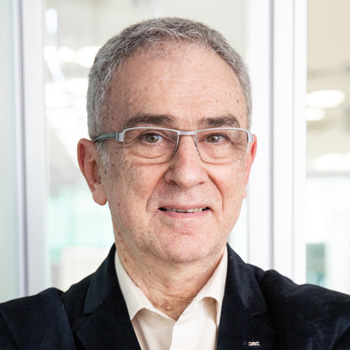
Dr. Roberto Giugliani, MD, PhD, Full Professor at the Department of Genetics of the Federal University of Rio Grande do Sul, is a medical geneticist who founded and is an active member of the Medical Genetics Service of the University Hospital, in Porto Alegre, Brazil. Prof. Giugliani’s main interests are concentrated in screening, diagnosis, and treatment of inborn errors of metabolism, particularly of lysosomal storage diseases, having supervised the training of over 100 MSc/PhDs.
Goker-Alpan, Ozlem, MD
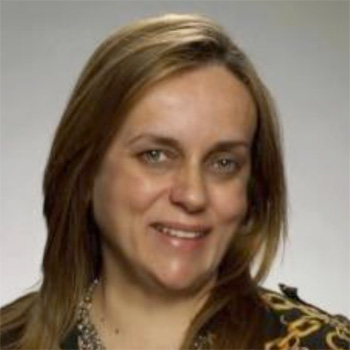
Ozlem Goker-Alpan, MD, is the founder and CEO of Lysosomal and Rare Disorders Research and Treatment Center. She received her MD degree in 1990 from Marmara University School of Medicine in Istanbul, Turkey with the highest honors as first in her class. She trained in Pediatrics and then served as a Pediatric Chief Resident at SUNY at Stony Brook, New York. She completed her first fellowship in Clinical and Biochemical Genetics at the National Institutes of Health, Greater Washington Medical Genetics Program in 1999, and worked as an adjunct scientist at the National Child Health Institute. Her second fellowship focused on Lysosomal Storage Disorders and Gaucher disease at the Clinical Neuroscience Branch, NIMH.
Grabowski, Gregory, MD

Currently, an independent consultant to multiple companies and foundations focused on rare diseases. Previously, I spent 45 years in the lysosomal disease field with emphasis on the basic and translational science of glysosphingolipid disorders and their therapies. I had/have a primary focus on Gaucher disease and the mechanisms of GBA1 carrier status leading to increased risks of developing Parkinson Disease. I have mentored over 50 pre- and post-docs.
Haskins, Mark Edward, VMD, PhD, FCPP

I spent 40 years at the veterinary school at the University of Pennsylvania finding dogs and cats with lysosomal storage diseases, including mucopolysaccharidosis (I, IIIB, VI, and VII), mucolipidosis II, glycogen storage disease IV, alpha-mannosidosis, Neimann-Pick C disease, fucosidosis, and Krabbe disease. I studied disease pathogenesis and evaluated approaches to therapy including bone marrow transplantation, enzyme therapy, and gene therapy. I was privileged to receive the 2018 Roscoe O. Brady Award from WORLDSymposium.
Horowitz, Mia, PhD
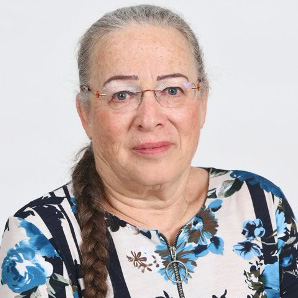
Horowitz studies misfolding of lysosomal proteins using Drosophila as a model, in general. In particular, she researches Gaucher disease, resulting from mutations in the GBA1 gene. She showed that the mutant GBA1-encoded enzyme (GCase) is misfolded in the ER, which activates the Unfolded Protein Response. Expression of mutant misfolded GCase in the fly leads to development of parkinsonian signs, which are ameliorated by chaperones. She is interested in sharing her knowledge/experience with the young generation.
Ibrahim, Jennifer, MD
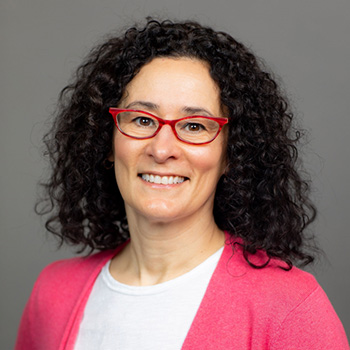
Jennifer Ibrahim is Head of Medical Affairs for Rare Disease at Sanofi, based in Cambridge Massachusetts. Prior to joining industry in 2013, she was Genetics Division Chief at St. Joseph’s Children’s Hospital in Paterson, NJ. Her clinical focus was dysmorphology, lysosomal storage disorders, prenatal genetics, and multidisciplinary care for individuals with complex genetic conditions. In her industry role, she is responsible for strategies to optimize health outcomes for patients with rare diseases.
Jarnes, Jeanine, PharmD, MSc Pharmacogenomids
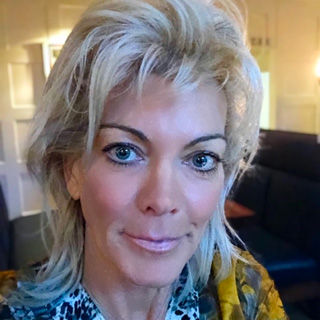
Jeanine Jarnes, PharmD, is an Assistant Professor in the University of Minnesota Department of Pediatrics, Medical School, and is an adjunct assistant professor in the College of Pharmacy, University of Minnesota. Dr. Jarnes serves as the Clinical Pharamcogeneticist for the Lysosomal Disease Network and as a clinical researcher for patients with lysosomal diseases. Her research focus includes projects in the following areas: natural history of gangliosidosis diseases (such as Tay-Sachs disease, Sandhoff disease, and GM1-gangliosidosis), small molecule and gene therapies, classifying and managing infusion reactions to intravenous enzyme replacement therapies (ERT) for lysosomal diseases, pharmacokinetics and pharmacodynamics of therapies for lysosomal diseases.
Keutzer, Joan, PhD
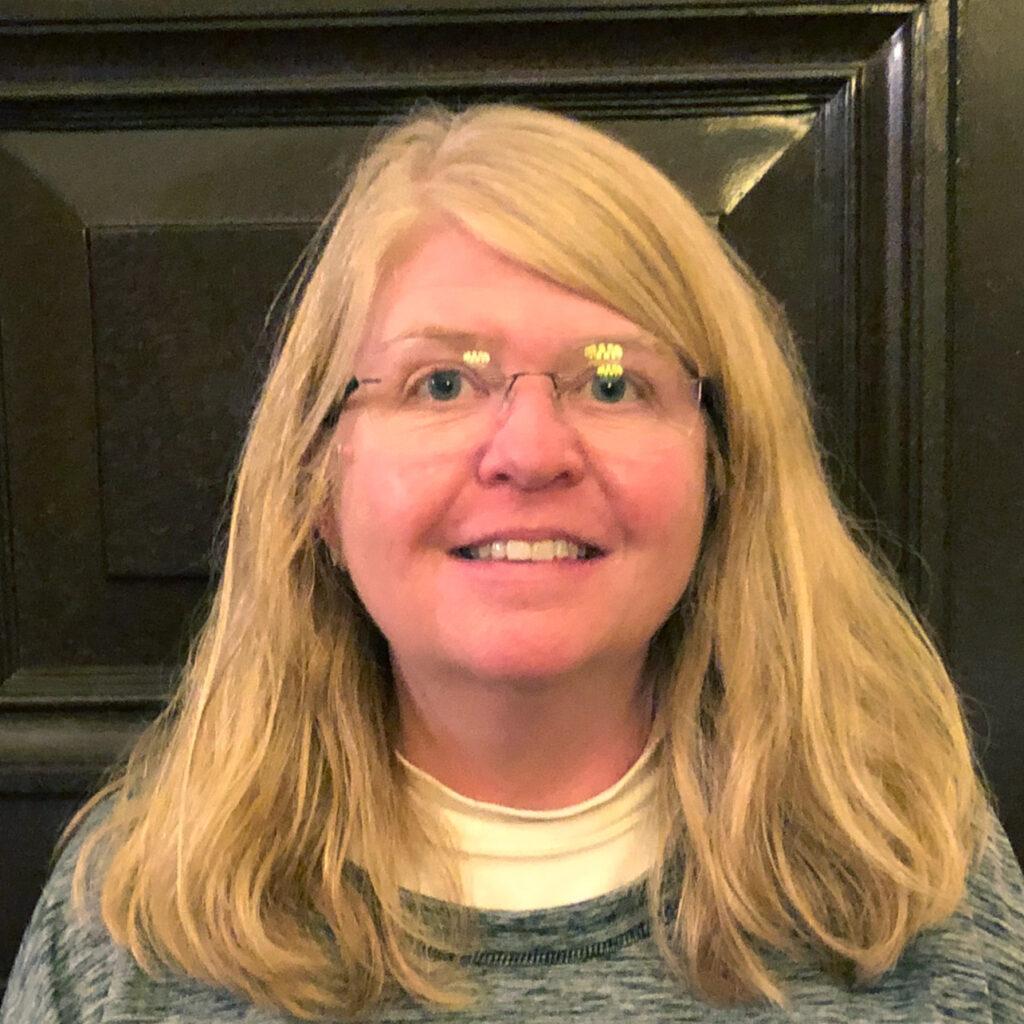
Joan Keutzer, Ph.D. is an independent consultant. Joan retired after 24-years at Genzyme (later Sanofi Genzyme). Joan’s last position was VP and Head of Global Scientific Affairs. Joan was involved in the development of ERT for Fabry disease, MPS I and Pompe disease. Joan oversaw the development of newborn screening assays, biomarker assays, and improved diagnostic assays. Joan established an R&D group to develop protocols for use in clinical and newborn screening labs.
Kishnani, Priya, MD

Priya Kishnani is the Chen Family Distinguished Professor of Pediatrics, Division of Medical Genetics chief, and professor in the Department of Molecular Genetics and Microbiology at Duke University. Kishnani has conducted groundbreaking clinical and translational research in the fields of lysosomal storage diseases and glycogen storage diseases. Kishnani has been instrumental in the development of alglucosidase alfa and has shown commitment to understanding the natural history and evaluation of therapies of several LSDs and GSDs.
Klein, Terri, MPA (Master in Public Administration)
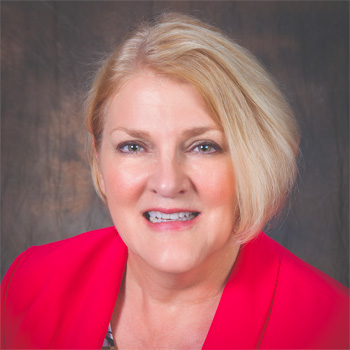
Terri Klein, MPA, is the President and Chief Executive Officer of the Nation MPS Society. Terri has 14 years of experience in rare diseases, including her work with the Society for nine years, serving as Development Director and Director of Operations. Terri has a direct, personal connection and history with MPS and ML. Her daughter, Jennifer, has ML III. She has been involved as a parent and staff member on all fronts in the fight for a cure. Her family has worked for years, advocating for MPS and ML through the Society.
Kubaski, Francyne, MSc, PhD
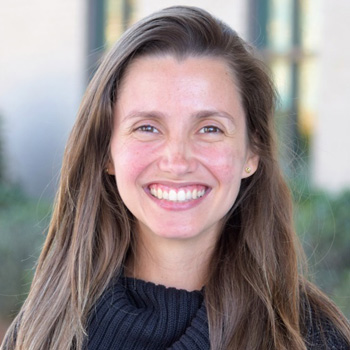
Dr. Kubaski is a staff scientist in the Biochemical Genetics Laboratory at Greenwood Genetic Center (USA). Dr. Kubaski was a post-doctoral fellow at PPGBM-UFRGS (Brazil). She received her Ph.D. in Molecular Biology and Genetics from UDEL (USA). She has been involved with research for inborn errors of metabolism, and most specifically lysosomal storage disorders, for over 10 years to apply tandem mass spectrometry for diagnosis, treatment monitoring, and newborn screening for these diseases.
Patterson, Marc, MD
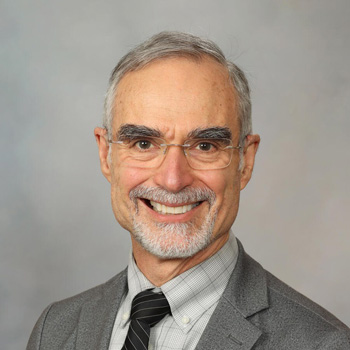
I am a child neurologist at Mayo Clinic. I have had the privilege of studying lysosomal diseases, and caring for those affected by them since my fellowship with Roscoe Brady more than 30 years ago. The focus of my work has been in clinical trials, registry development, and participation in advocacy groups. I am delighted to see young professionals embracing this challenging and exciting field.
Prada, Carlos, MD

Dr. Prada is the Division Head of Genetics, Genomics, and Metabolism at the Ann & Robert H. Lurie Children’s Hospital of Chicago and Northwestern University. Dr. Prada has conducted clinical trials including gene therapy, enzyme replacement, and small molecules for lysosomal storage disorders. Dr. Prada is passionate to help build connections between families with rare genetic disorders and academia. Educating the new generation of clinical and biochemical geneticists has been an area of focus.
Przybilla, Michael, PhD
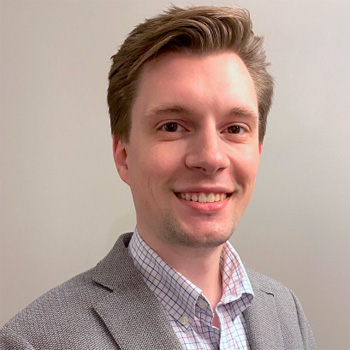
Dr. Przybilla is an Assistant Professor in the Department of Pediatrics at the University of Minnesota. He received his PhD in Molecular, Cellular, Developmental Biology & Genetics at the University of Minnesota in 2018. From 2019-2022 he was a postdoctoral assistant in the Gene Therapy and Diagnostics Laboratory. His work is focused on the development of novel therapies for lysosomal disorders, including gene therapy and gene editing.
Reebye, Vik, B.Sc(Hons); MSc, PhD
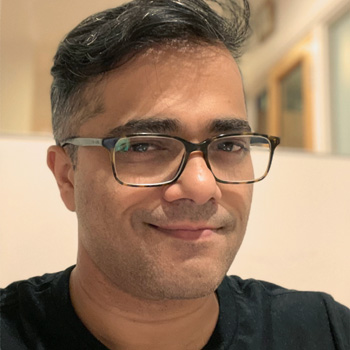
Vik is a Senior Research Fellow in Gene Activation at Imperial College London with over 19 years of experience in translational research. Vik works closely with the MiNA research team as Principal Scientist and leads its Rare Disease research programme. Vik has worked on saRNAs for over 10 years having developed MiNA’s first lead clinical candidate, CEBPA.
Schiffmann, Raphael, MD, MHSc, FAAN

Dr. Schiffmann is neurologist with special competence in child neurology currently a Senior VP and Scientific Fellow at 4D Molecular Therapeutics. Previously, he performed pre-clinical and clinical research, mainly on lysosomal diseases, at the National Institutes of Health and at the Baylor Institute of Metabolic Disease in Dallas, Texas for a combined total of 30 years. His publication record and scientific impact can be viewed here.
Schoser, Benedikt, MD

Professor Schoser is a trained neurologist, neurophysiologist, neurointensivist, palliative medicine doctor. He is a professor of Neurology, senior consultant neurologist and co-chair of the Friedrich-Baur-Institute, LMU Munich, Germany. He is fellow of the EAN . He organises the World muscle society teaching course and is an Executive WMS board member. He chaires the European Pompe consortium EPOC). He authored more than 310 peer-reviewed publications. His special interests are multisystemic neuromuscular translational research and therapy.
Sidransky, Ellen, MD

Ellen Sidransky, MD, is the Branch Chief of the Medical Genetics Branch and is a pediatrician and geneticist in the National Human Genome Research Institute at National Institutes of Health (NIH). Dr. Sidransky received her B.A. from Brandeis University and her M.D. from Tulane University. She trained in pediatrics at Northwestern University, and in Clinical Genetics at the NIH. Dr. Sidransky has been a tenured NIH investigator and Section Chief since 2000. Her research interests include both clinical and basic aspects of Gaucher disease and Parkinson disease, studies of genotype/phenotype correlation and genetic modifiers, insights from mouse models, and novel treatment strategies. She played a lead role in establishing the association between glucocerebrosidase and parkinsonism.
Sniderman King, Lisa, MSc, CGC
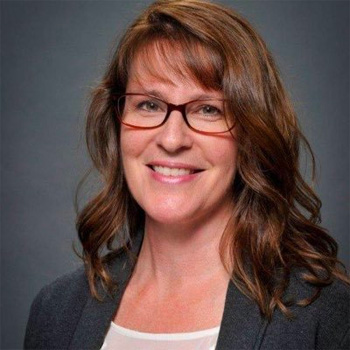
Lisa is a genetic counselor with 20+ years of experience, currently at Sanofi focusing on reducing diagnostic delay for patients with various LSDs. Prior to this she has had both provider and patient focused educational roles at Sanofi. Before industry, she was in adult and pediatric biochemical genetics clinics, and molecular and biochemical genetics laboratories. Experience includes LSD, other IEMs, newborn screening, molecular and biochemical laboratory assays, clinical trials, machine learning.
Tagle, Danilo, MS, PhD
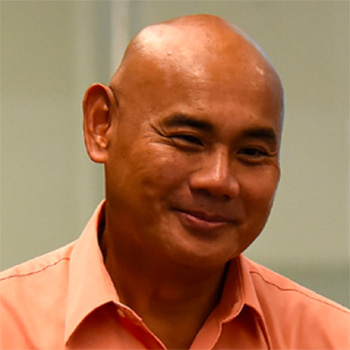
Dan Tagle holds a PhD in molecular biology and genetics, and is the director of NCATS’ Office of Special Initiatives. Tagle leads and provides scientific and programmatic oversight and coordination to the following trans-NIH programs: Extracellular RNA Communication, NIH Microphysiological Systems (also known as the Tissue Chip for Drug Screening program) and Stimulating Peripheral Activity to Relieve Conditions (SPARC).
Ullman, Julie, PhD
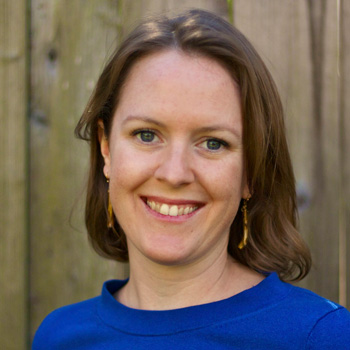
Julie Ullman received her PhD in 2015 from UC Berkeley in molecular & cellular biology studying endo-lysosomal trafficking in autism spectrum disorders. Her desire to impact patient lives led her directly to biotech post-PhD as a scientist at Denali Therapeutics where she led preclinical biology studies for ETV-IDS, Hunter Syndrome. Now, as Program Team Leader for Maze Therapeutic’s Pompe disease SRT, MZE001, she leads a cross functional team guiding scientific & strategic decision making.
Wang, Raymond, MD
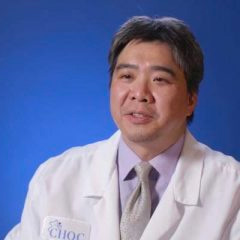
Raymond Wang, MD, is the Director of the Multidisciplinary Lysosomal Storage Disorder Program at CHOC and a board certified clinical geneticist and biochemical genetics specialist. Dr. Wang is aware of the challenges faced by patients and families with rare diseases such as lysosomal disorders. He has committed the program to provide: treatment for the lysosomal disorders that have existing therapies; access to investigational treatment for patients with disorders that currently have no approved/effective therapy; and translational research vital to development of “next generation” treatments and cures for lysosomal disorder patients.
Ward, Simon, MA, PhD
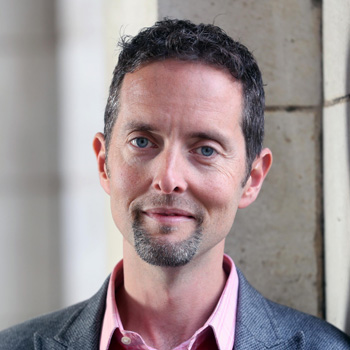
I lead the Medicines Discovery Institute at Cardiff University, UK which designs, discovers and develops new medicines for the brain (preclinical-Phase 1). During my career I have worked extensively in major pharma, biotechs, not-for-profits and academia – running research projects towards new drugs. I have secured major financial investments and founded new companies. I am passionate about supporting the next generation of drug discoverers to navigate the increasingly complex career landscape via academia or industry.
Wasserstein, Melissa, MD
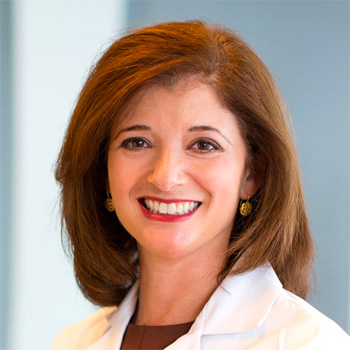
Melissa Wasserstein, MD, is the Chief of the Division of Pediatric Genetic Medicine at the Children’s Hospital at Montefiore and professor of Pediatrics and Genetics at the Albert Einstein College of Medicine. After graduating from Cornell University, she received her medical degree from New York University School of Medicine, followed by a pediatrics residency and medical genetics fellowship at Mount Sinai. A board-certified biochemical geneticist and pediatrician, Dr. Wasserstein diagnoses and manages patients with inborn errors of metabolism. Her research activities focus on expanding and enhancing newborn screening to optimize the outcome of infants with rare disorders.
Weinstein, David, MD, MMsc

David Weinstein, MD, MMSc is a Senior Vice President for Clinical Development Passage Bio. He graduated from Harvard Medical School, and did a residency, chief residency, and fellowship in pediatric endocrinology at Boston Children’s Hospital. After obtaining his Masters in Clinical Investigation from Harvard and MIT, and became Director of the Glycogen Storage Disease Program at Boston Children’s. In 2005, he directed the GSD Program and became a tenured professor at the University of Florida, followed by a move to the University of Connecticut in where his team launched the world’s first gene therapy trial for glycogen storage disease. Most recently, he left the academic world to serve as the medical lead for the GM1 gangliosidosis and metachromatic leukodystrophy gene therapy trials at Passage Bio.
Whitley, Chester, PhD, MD

Chester “Chet” B. Whitley, Ph.D., M.D. is Professor of Pediatrics, and Experimental and Clinical Pharmacology, and Director of the Advanced Therapies Program at the University of Minnesota. Beginning in 1983, he conducted the first U.S. trials of bone marrow transplantation for Hurler syndrome and other lysosomal diseases (Krabbe disease, Tay-Sachs disease). Hematopoietic stem cell transplant became recognized as the first efficacious treatment for a lysosomal disease and provided the proof-of-principle for future enzyme replacement therapies, gene therapy, and other systemic treatments. In conversation with the US FDA in the early 1990’s, he coined the term “ultra-orphan disease”. He led the first clinical trial of gene therapy for a mucopolysaccharidosis condition (Hunter syndrome 1998), inventedthe DMB dye-binding testfor glycosaminoglycans, discovered the first ‘pseudo-deficiency’ allele for MPS I, tested intravenous zinc-finger nuclease gene-editing in mice with Hurler syndrome, and is co-inventor of the PS Gene-editing System. He organized the 1st International Symposium on Mucopolysaccharidosis and Related Diseases (1988), led the NIH program project grant Gene Therapy for Metabolic Disease, the NIH-funded Lysosomal Disease Network, and founded WORLDSymposium.
October 2024 Research Spotlight:
FOCUS ON POMPE DISEASE
The second edition of SPOTLIGHT highlights recent scientific publications on Pompe disease. Authors who have been speakers at WORLDSymposium are noted in bold.
- Precision medicine in action for Pompe disease
Tarallo A, Parenti G, Brunetti-Pierri N.
Mol Ther Nucleic Acids. 2024 Jul 9;35(3):102265. doi: 10.1016/j.omtn.2024.102265. eCollection 2024 Sep 10. PMID: 39100736 - Decoding the muscle transcriptome of patients with late onset Pompe disease reveals markers of disease progression
Monceau A, Gokul Nath R, Suárez-Calvet X, Musumeci O, Toscano A, Kierdaszuk B, Kostera-Pruszczyk A, Domínguez-González C, Hernández-Lain A, Paradas C, Rivas E, Papadimas G, Papadopoulos C, Chrysanthou-Piterou M, Gallardo E, Olivé M, Lilleker J, Roberts ME, Marchese D, Lunazzi G, Heyn H, Fernández-Simón E, Villalobos E, Clark J, Katsikis P, Collins C, Mehra P, Laidler Z, Vincent A, Tasca G, Marini-Bettolo C, Guglieri M, Straub V, Raben N, Díaz-Manera J.
Brain. 2024 Jul 24:awae249. doi: 10.1093/brain/awae249. Online ahead of print. PMID: 39045638 - Real-life effectiveness 1 year after switching to avalglucosidase alfa in late-onset Pompe disease patients worsening on alglucosidase alfa therapy: A French cohort study
Tard C, Bouhour F, Michaud M, Beltran S, Fournier M, Demurger F, Lagrange E, Nollet S, Sacconi S, Noury JB, Magot A, Cintas P, Renard D, Deibener-Kaminsky J, Lefeuvre C, Davion JB, Salort-Campana E, Arrassi A, Taouagh N, Spinazzi M; Pompe Study Group; Attarian S, Laforêt P.
Eur J Neurol. 2024 Jul;31(7):e16292. doi: 10.1111/ene.16292. Epub 2024 Apr 8. PMID: 38587143 - Changes in forced vital capacity over ≤ 13 years among patients with late-onset Pompe disease treated with alglucosidase alfa: new modeling of real-world data from the Pompe Registry
Berger KI, Chien YH, Dubrovsky A, Kishnani PS, Llerena JC Jr, Neilan E, Roberts M, Sheng B, Batista JL, Periquet M, Wilson KM, van der Ploeg AT.
J Neurol. 2024 Aug;271(8):5433-5446. doi: 10.1007/s00415-024-12489-9. Epub 2024 Jun 19. PMID: 38896264 - Start, switch and stop (triple-S) criteria for enzyme replacement therapy of late-onset Pompe disease: European Pompe Consortium recommendation update 2024
Schoser B, van der Beek NAME, Broomfield A, Brusse E, Diaz-Manera J, Hahn A, Hundsberger T, Kornblum C, Kruijshaar M, Laforet P, Mengel E, Mongini T, Orlikowski D, Parenti G, Pijnappel WWMP, Roberts M, Scherer T, Toscano A, Vissing J, van den Hout JMP, van Doorn PA, Wenninger S, van der Ploeg AT.
Eur J Neurol. 2024 Sep;31(9):e16383. doi: 10.1111/ene.16383. Epub 2024 Jun 14. PMID: 38873957 - Long term survival in patients with classic infantile Pompe disease reveals a spectrum with progressive brain abnormalities and changes in cognitive functioning
van den Dorpel JJA, Mackenbach MJ, Dremmen MHG, van der Vlugt WMC, Rizopoulos D, van Doorn PA, van der Ploeg AT, Muetzel R, van der Beek NAME, van den Hout JMP.
J Inherit Metab Dis. 2024 Jul;47(4):716-730. doi: 10.1002/jimd.12736. Epub 2024 Apr 8. PMID: 38584574 - Non-invasive optoacoustic imaging of glycogen-storage and muscle degeneration in late-onset Pompe disease
Tan L, Zschüntzsch J, Meyer S, Stobbe A, Bruex H, Regensburger AP, Claßen M, Alves F, Jüngert J, Rother U, Li Y, Danko V, Lang W, Türk M, Schmidt S, Vorgerd M, Schlaffke L, Woelfle J, Hahn A, Mensch A, Winterholler M, Trollmann R, Heiß R, Wagner AL, Raming R, Knieling F.
Nat Commun. 2024 Sep 8;15(1):7843. doi: 10.1038/s41467-024-52143-6. PMID: 39245687 - Preclinical lentiviral hematopoietic stem cell gene therapy corrects Pompe disease-related muscle and neurological manifestations
Yoon JK, Schindler JW, Loperfido M, Baricordi C, DeAndrade MP, Jacobs ME, Treleaven C, Plasschaert RN, Yan A, Barese CN, Dogan Y, Chen VP, Fiorini C, Hull F, Barbarossa L, Unnisa Z, Ivanov D, Kutner RH, Guda S, Oborski C, Maiwald T, Michaud V, Rothe M, Schambach A, Pfeifer R, Mason C, Biasco L, van Til NP.
Mol Ther. 2024 Sep 17:S1525-0016(24)00606-3. doi: 10.1016/j.ymthe.2024.09.024. Online ahead of print. PMID: 39295144 - Mutation Spectrum of GAA Gene in Pompe Disease: Current Knowledge and Results of an Italian Study
Moschetti M, Lo Curto A, Giacomarra M, Francofonte D, Zizzo C, Messina E, Duro G, Colomba P.
Int J Mol Sci. 2024 Aug 23;25(17):9139. doi: 10.3390/ijms25179139. PMID: 39273088 - Brain glycogen build-up measured by magnetic resonance spectroscopy in classic infantile Pompe disease
Najac C, van der Beek NAME, Boer VO, van Doorn PA, van der Ploeg AT, Ronen I, Kan HE, van den Hout JMP.
Brain Commun. 2024 Sep 12;6(5):fcae303. doi: 10.1093/braincomms/fcae303. eCollection 2024. PMID: 39309683 - Generation of two induced pluripotent stem cell lines (HIMRi006-A and HIMRi007-A) from Pompe patients with infantile and late disease onset
Volke L, Daya NM, Döring K, Rohm M, Athamneh M, Zaehres H, Roos A, Güttsches AK, Mavrommatis L, Vorgerd M.
Stem Cell Res. 2024 Sep;79:103459. doi: 10.1016/j.scr.2024.103459. Epub 2024 Jun 10. PMID: 38896971 - Small molecule inhibition of glycogen synthase I reduces muscle glycogen content and improves biomarkers in a mouse model of Pompe disease
Gaspar RC, Sakuma I, Nasiri A, Hubbard BT, LaMoia TE, Leitner BP, Tep S, Xi Y, Green EM, Ullman JC, Petersen KF, Shulman GI.
Am J Physiol Endocrinol Metab. 2024 Oct 1;327(4):E524-E532. doi: 10.1152/ajpendo.00175.2024. Epub 2024 Aug 22. PMID: 39171753 - Comparing the efficacy of cipaglucosidase alfa plus miglustat with other enzyme replacement therapies for late-onset Pompe disease: a network meta-analysis utilizing patient-level and aggregate data
Shohet S, Hummel N, Fu S, Keyzor I, MacCulloch A, Johnson N, Castelli J, Czarny-Ozga I, Mozaffar T, Thom H.
J Comp Eff Res. 2024 Oct;13(10):e240045. doi: 10.57264/cer-2024-0045. Epub 2024 Sep 17. PMID: 39287071 - Optimizing clinical outcomes: The journey of twins with CRIM-negative infantile-onset Pompe disease on high-dose enzyme replacement therapy and immunomodulation
Fares AH, Desai AK, Case LE, Sharon C, Klinepeter A, Kirby A, Lisi MT, Koch RL, Kishnani PS.
Mol Genet Metab Rep. 2024 Sep 14;41:101141. doi: 10.1016/j.ymgmr.2024.101141. eCollection 2024 Dec. PMID: 39314994 - Enzyme replacement therapy and immunotherapy lead to significant functional improvement in two children with Pompe disease: a case report
Castellar-Leones SM, Ortiz-Corredor F, Manrique-Hernández D, Sánchez-Peñarete D, Ruiz-Ospina E, Soto-Peña D, Correa-Arrieta C.
J Med Case Rep. 2024 Jul 18;18(1):328. doi: 10.1186/s13256-024-04638-5. PMID: 39020349 - Long-term observation of patients with advanced late-onset Pompe disease undergoing enzyme replacement therapy: A 15-year observation in a single center
Mori-Yoshimura M, Takizawa H, Unuma A, Oya Y, Yorimoto K, Katsuta W, Miyagi K, Sato N, Hara T, Takahashi Y.
Brain Dev. 2024 Aug 13:S0387-7604(24)00099-8. doi: 10.1016/j.braindev.2024.07.004. Online ahead of print. PMID: 39142946 - Bulbar muscle impairment in patients with late onset Pompe disease: Insight from the French Pompe registry
Retailleau E, Lefeuvre C, De Antonio M, Bouhour F, Tard C, Salort-Campana E, Lagrange E, Béhin A, Solé G, Noury JB, Sacconi S, Magot A, Pakleza AN, Orlikowski D, Beltran S, Spinazzi M, Cintas P, Fournier M, Bouibede F, Prigent H, Nicolas G, Taouagh N, El Guizani T, Attarian S, Arrassi A, Hamroun D, Laforêt P.
Eur J Neurol. 2024 Oct;31(10):e16428. doi: 10.1111/ene.16428. Epub 2024 Aug 7. PMID: 39109844 - Mutational spectrum and genotype-phenotype correlation in Mexican patients with infantile-onset and late-onset Pompe disease
Martinez-Montoya V, Sánchez-Sánchez LM, Sandoval-Pacheco R, Castro DMA, Arellano-Valdez CA, Ávila-Rejón CA, Aguilar-Juárez PA, Espino-Pluma M, González-Santillanes CA, Martínez-Segovia RI, Olmos-Morfin D, la Torre OP, Solís-Sánchez I, Espinosa MVM, Villarroel-Cortés CE, Velarde-Félix JS, López-Valdez J, Olaiz-Urbina J, Ricárdez-Marcial E, Vergara-Sánchez I, Radillo-Díaz P, Kazakova E, De la Fuente-Cortez B, Del Carmen Marquez-Quiróz L, Torres-Octavo B, Diaz-Martinez R.
Mol Genet Genomic Med. 2024 Jul;12(7):e2480. doi: 10.1002/mgg3.2480. PMID: 38958145 - The PompeQoL questionnaire: Development and validation of a new measure for children and adolescents with Pompe disease
Truninger MI, Werner H, Landolt MA, Hahn A, Hennermann JB, Lagler FB, Möslinger D, Pfrimmer C, Rohrbach M, Huemer M.
J Inherit Metab Dis. 2024 Jul 9. doi: 10.1002/jimd.12777. Online ahead of print. PMID: 38979754 - Real-world data of in-hospital administration of alglucosidase alfa in French patients with Pompe disease: results from the National Claims Database
Attarian S, Campana ES, Perrier S, Afonso M, Karam P, Hai N, Laforet P.
J Neurol. 2024 Sep;271(9):5846-5852. doi: 10.1007/s00415-024-12543-6. Epub 2024 Jul 4. PMID: 38963441